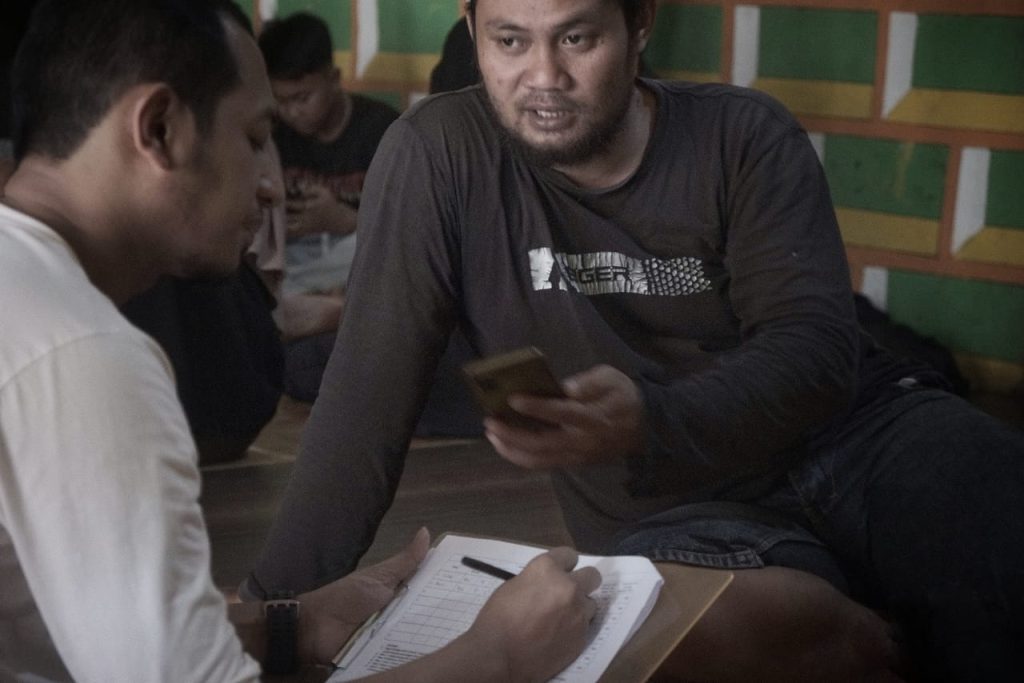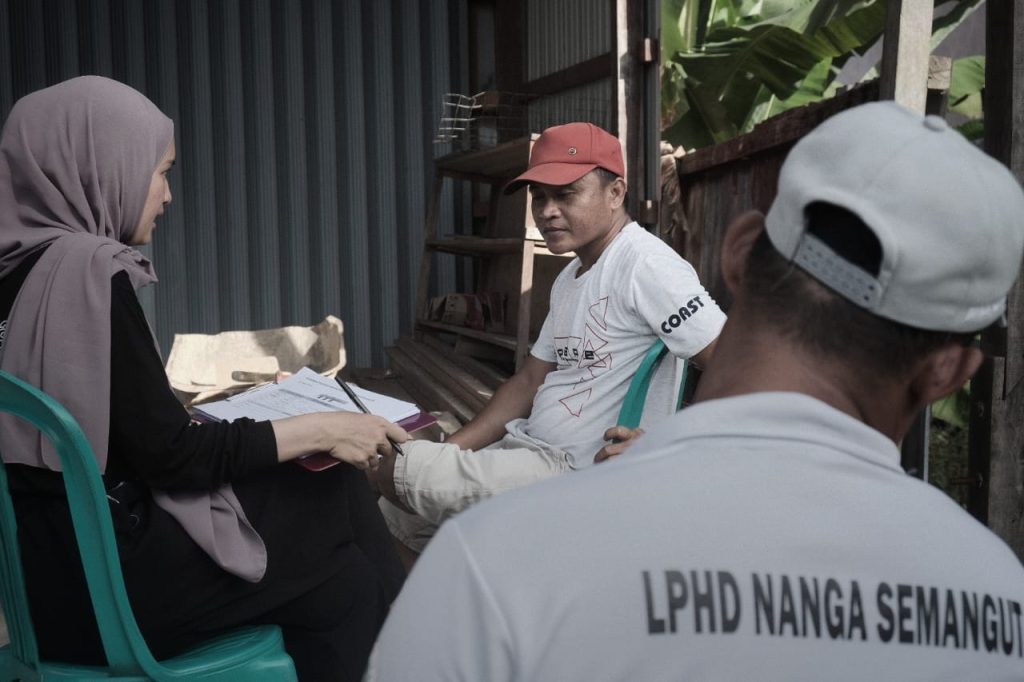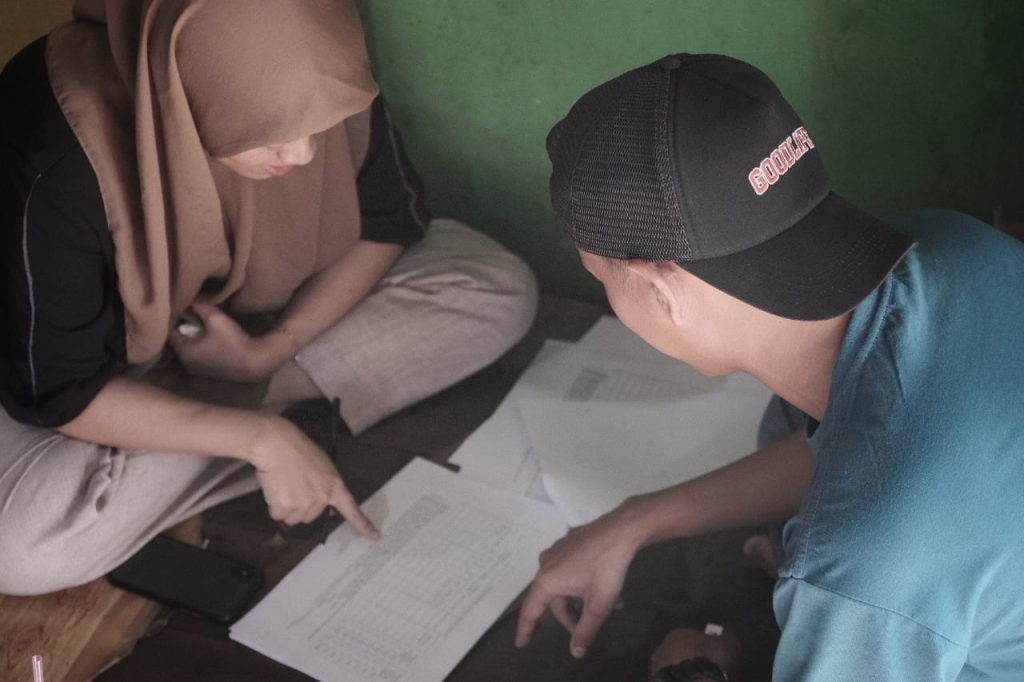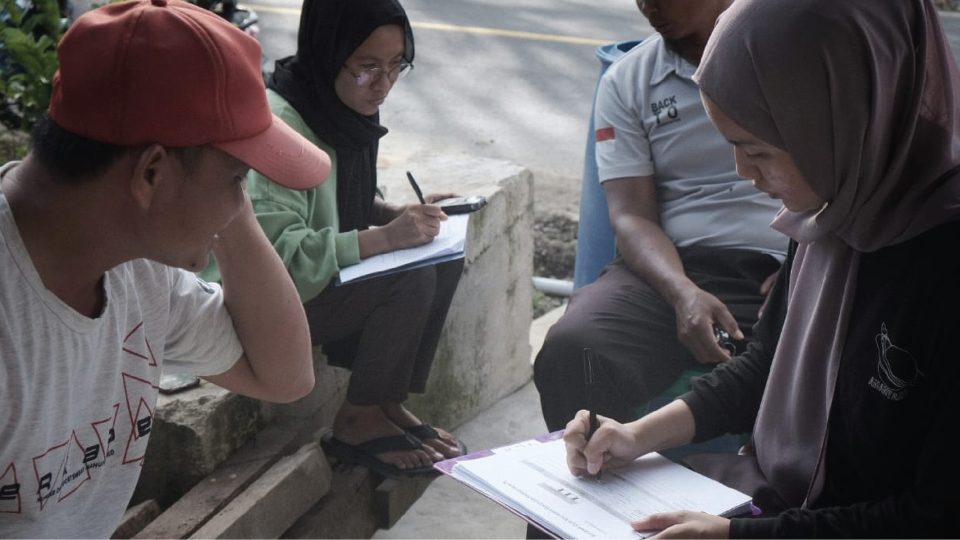Wednesday 01/07/2023, 12.00 WIB 


The process of collecting gender equality data and assisting PS to the Head of LPHD Nanga Semangut. Saturday (01/07), photo: Thomas Oni Veriasa
KAPUAS HULU, LATIN.OR.ID – Over the past five years, Social Forestry permits (PS) have expanded to cover an area of 5.1 million hectares and reach approximately 900 thousand households. The program’s achievements face major challenges, from efforts to accelerate the quantity of area to efforts to improve the quality of post-permit services. Various previous studies attempted to complement the current and future quality of Social Forestry management.
The Indonesian Tropical Nature Institute (LATIN) collaborated with the SAMPAN Kalimantan Association to conduct a field study using a participatory approach in Kapuas Hulu, West Kalimantan to gain a strong understanding of the achievements, barriers, opportunities and challenges of facilitation and gender mainstreaming in Social Forestry. Furthermore, LATIN will develop Wana Kanaya Sembada (Wakanda Index), a method of measuring the success and impact of social forestry based on case studies in several regions of Indonesia.
Field studies have been carried out starting today (01/07) for the next two weeks using questionnaire survey methods, in-depth interviews and intensive discussions. Five survey teams from LATIN and SAMPAN collected data in Nanga Semangut Village (Village Forest 12,446 ha) and Selaup Village (Village Forest 2,572ha), Kapuas Hulu District, West Kalimantan. The determination of respondents was carried out purposively by all members of the Social Forestry Business Group (KUPS) and Village Forest Management Institutions (LPHD) in the two villages with the aim of understanding aspects of the study from the side of the direct actors. There will be at least fifty families as respondents with a balanced composition of male and female representation. This study is expected to recommend improvements to the effective management of Social Forestry.
Writer: Thomas Oni Veriasa, Annisa Aliviani

